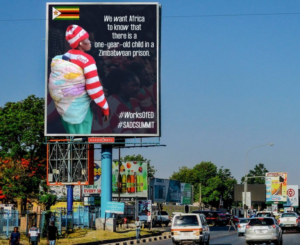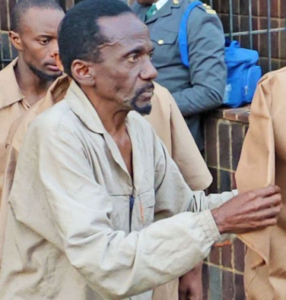ZIMBABWE PREPARES TO DAZZLE SADC SUMMIT WITH LAVISH UPGRADES

In a vivid display of statecraft and strategic maneuvering, Zimbabwean President Emmerson Mnangagwa is taking decisive actions to impress the Southern African Development Community (SADC) during their annual summit in Harare this August. The preparations include significant infrastructure upgrades such as refurbishing roads and constructing villas, alongside plans to host the regional leaders at the architectural marvel, the new Parliament Building in Mount Hampden, or the opulently renovated Hyatt Regency Harare/The Meikles, formerly known as Meikles Hotel.
This elaborate gesture comes at a critical time. Following a contentious electoral victory last year, which was openly rejected by SADC leaders, President Mnangagwa’s efforts transcend mere hospitality. They are a calculated bid to secure political legitimacy and survival, and perhaps more importantly, to divert attention from Zimbabwe’s pressing economic and social woes. These actions raise questions about the priorities and governance strategies not only of Zimbabwe but of similar regimes worldwide.
Such grand displays are not uncommon in regions where leaders face both domestic disapproval and international scrutiny. By focusing on infrastructure and hosting capabilities, leaders like Mnangagwa aim to craft an image of stability and progress on the international stage. This strategy seeks international validation which, they hope, will translate into political endorsement and prestige that bolsters their standing both at home and abroad.
However, these leaders often prioritize these spectacles over the immediate needs and concerns of their own citizens. This misalignment of priorities can lead to the neglect of essential social services like healthcare, education, and welfare, further exacerbating the hardships faced by the populace. The irony is stark: as majestic villas rise, the foundations of societal well-being seem to crumble. This phenomenon is not merely an African narrative but a global concern where political optics often eclipse genuine progress.
The negative consequences of such governance are manifold. While a country may momentarily glitter on the global stage, the glint is not gold but a mirage that soon dissipates to reveal the gritty reality of unmet public needs and persistent internal challenges. Misallocation of resources can lead to economic inefficiencies and a disconnect between the government and its people. Over time, this erosion of trust and legitimacy can destabilize the very fabric of society, leading to unrest and dissatisfaction.
Moreover, the focus on impressing international visitors can sometimes be a superficial remedy to deeper systemic issues. While showcasing economic progress might attract short-term investments or diplomatic nods, it does not necessarily address underlying economic disparities or infrastructural deficiencies. The discrepancy between the showcased developments and the lived experiences of the citizens can widen the gap between the rulers and the ruled, often sparking significant civil unrest.
In Zimbabwe’s context, as President Mnangagwa lays down red carpets and polishes new buildings, the real test remains within the unadorned walls of the average Zimbabwean’s home. As such, it is imperative for leaders to recalibrate their focus towards sustainable and inclusive development. True progress is measured not by the heights of the buildings or the smoothness of the roads but by the health, happiness, and well-being of the population.
The situation unfolding in Zimbabwe serves as a poignant reminder of the complex interplay between governance, legitimacy, and public perception. It underscores the essential need for leaders to prioritize justice and equity, ensuring that the real needs of the citizens are met with the same fervor and dedication as those of impressing international dignitaries. As SADC leaders converge on Harare, the world watches, waiting to see if the sparkle is part of a deeper change or merely another layer of veneer on an unstable edifice.




President Mnangagwa’s attempts to impress SADC leaders are nothing but a distraction from the real issues facing Zimbabwe. Instead of wasting resources on extravagant infrastructure, he should focus on addressing the dire economic conditions and improving public services for his citizens
It’s disheartening to see that while Zimbabweans struggle with daily hardships, their leader is more concerned with showcasing grandeur to foreign dignitaries. This misallocation of funds highlights the disconnect between the government and the people it is supposed to serve.
This lavish display is a blatant attempt to divert attention from Mnangagwa’s contentious electoral victory and the ongoing economic crisis. Real progress won’t come from building fancy hotels and roads but from addressing the fundamental needs of the people.Mnangagwa’s actions are a clear example of how political leaders prioritize their image over the well-being of their citizens. Instead of focusing on superficial upgrades to impress international visitors, he should be working on policies that provide sustainable development and improve the lives of ordinary Zimbabweans.